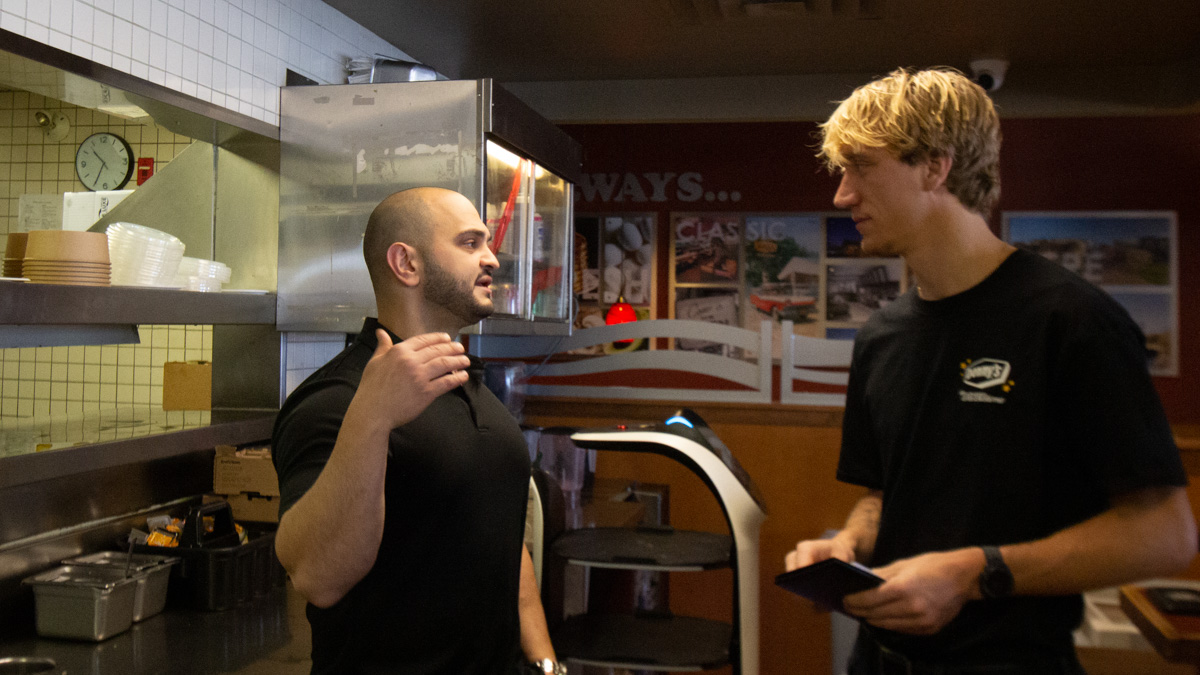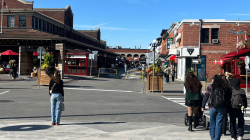While data suggests Ontario’s restaurant industry experienced an increase in dining during the GST holiday, some Ottawa restaurant workers say they did not notice.
The federal GST/HST break, from Dec. 14 to Feb. 15, exempted food and many alcoholic beverages sold at restaurants from sales tax. In Ontario, a restaurant meal costing $50 would ordinarily have had 13 per cent HST added, or $6.50. During the tax break, the bill would have been $50.
From Dec. 14 to 27, data from OpenTable shows dining out in Ontario increased 23 per cent compared to the same period in 2023. This matches a survey from Restaurants Canada, which found the Consumer Dining Index, tracking how often people buy restaurant meals, went up seven points compared to December 2023.
Restaurants Canada’s President and CEO, Kelly Higginson, attributes the increase to the tax holiday.
“Seeing Canadians embrace the tax relief and treat themselves to a meal out is really encouraging, especially as we navigate a climate of economic uncertainty,” Higginson said. “More sales also mean more hours for our nearly 1.2 million workers, so this is a win-win-win.”
But while the tax holiday moved the needle on a large scale, but, Jeffrey Nohra, owner of a Denny’s on Clyde Avenue, says the break barely made a difference.
“Some people thought the change was going to be dramatic, but really it wasn’t,” Nohra said. “People are going to go out to eat regardless. At the end of the day, you’re not going to save that much.”
Nohra says the tax holiday may have increased his UberEats orders but he’s not certain.
Sam Saeed, a server at Denny’s, said there may actually have been a small dip in tips because of the lower totals of bills. He says the difference is so small it has not affected his overall income.
“It’s not a big, big impact – I would say only a few dollars up and down,” he said.
Paige Nutley, a server at The Puck Stop in Gloucester, said she forgot about the tax break.
“I registered that it was happening and then carried on as I usually did because it didn’t really affect me,” she said. “People would normally ask me what their total was before tax and tipped me based on that, so when the [tax] break came into effect, it didn’t change anything for me.”
Her assistant general manager, Steven Haller-Watters, cannot attribute the restaurant’s recent success to the tax break.
“We have done better in profits lately but I’m not sure if that is a result of the holiday season, our recent price increases, or the tax break,” he said.
Neither Haller-Watters nor Nohra agrees with Restaurant Cananda’s stance on encouraging a permanent tax break within the industry.
Nohra says he “just doesn’t see how it’s possible” to implement permanent tax relief for restaurant-prepared meals.
“You can’t take it away for just restaurants and have HST apply to everything else – it’s not fair,” he said. “We would be constantly collecting HST rebates where other industries would not be.”
Haller-Watters says he is not sure keeping the tax break would “outweigh its downsides of having no taxes.”
“We’re missing a significant part of taxes for the government to utilize.”
Nohra has some concern about how they will need to report the tax holiday.
“It was a very last-second announcement and the implementation of it was unstructured,” he said. “They didn’t tell businesses how to do it and there was no guidance for us.”
Nohra hopes there will be some light shed on how to proceed and what the tax break means for restaurants in the books.
Restaurants Canada says they will have additional data later this month that will provide a fuller picture of the late December and January sales.




